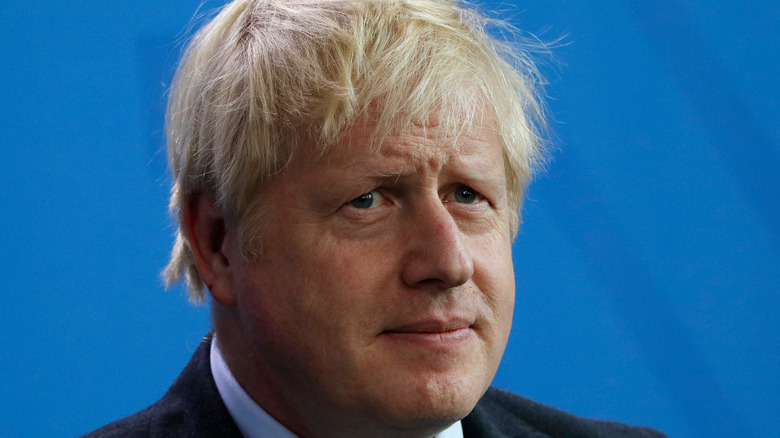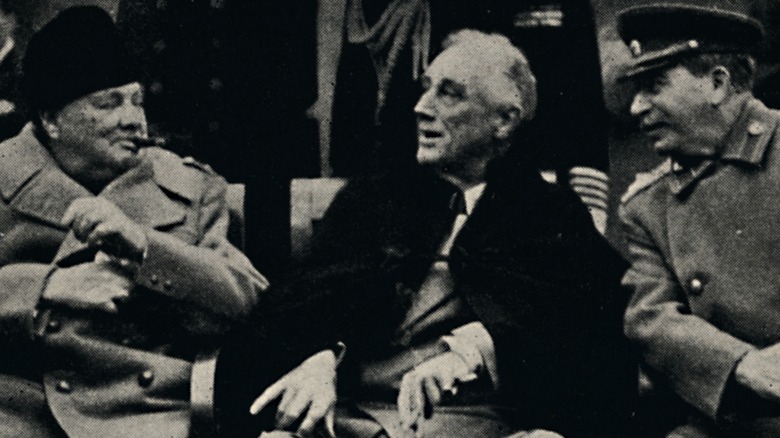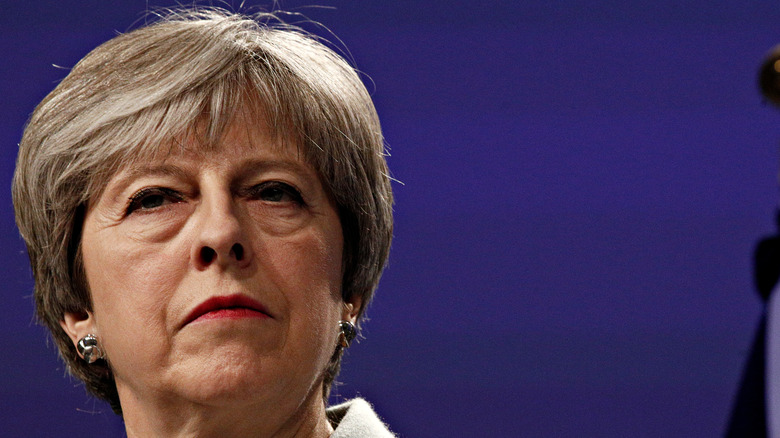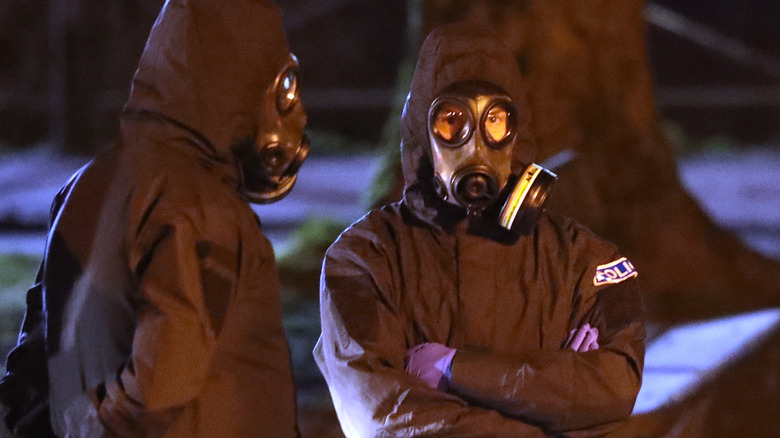Inside Russia's Relationship With The UK
Despite being on opposite sides of the European continent, relations between Russia and the U.K. date back to 1553 when Russian Tsar Ivan the Terrible received British explorer Richard Chancellor. "Anglo-Russian Relations through the Centuries" explains that Chancellor was attempting to find routes to the Spice Islands in present-day Indonesia. The goal was to make a route through land rather than by sea.
The roles reversed in 1698 when Russia's Peter the Great arrived in England in hopes to learn about the navy establishment. England's King William III offered to help him, as he aimed to increase trade with Russia and allow for access to eastern Asia. A few years after returning to Russia, Peter the Great created a shipbuilding program that led to Russia's first navy (via Royal Museums Greenwich).
Relations between the two became more complicated by the 1900s. Though Great Britain and Russia were allies as part of the Triple Entente during World War I, the following Russian Revolution forced the British and other nations to take a side. They sided with the anti-Bolshevik White Army, according to Warwick. In the end, the communist Bolsheviks, led by Vladimir Lenin, succeeded in taking power of the government in 1917 (via National Geographic).
Great Britain and Russia were allies during both world wars
Great Britain remained suspicious of Russia — now the Soviet Union — throughout the 1920s and 30s, especially due to Stalin's purges from 1936 to 1938. But with the outbreak of World War II, the two powers again found themselves as allies, albeit begrudgingly. The British opposed the Soviet's invasion of Poland and Finland, and it took a Nazi German invasion of the Soviet Union for Prime Minister Winston Churchill to proclaim Britain's backing of the Soviets. But this support was only in their fight against the Nazis and not without abandoning a sense of suspicion, as Churchill was vehemently anti-communist (via "The Soviet Union and Europe in the Cold War, 1943–53").
During World War II, Great Britain, the Soviet Union, and the United States famously formed the Allied Powers against Germany, Italy, and Japan. Tensions still ran high. The National WWII Museum explains that Stalin knew that Churchill and U.S. President Franklin Roosevelt would oppose Soviet influence in Europe after the war. Furthermore, Churchill and Roosevelt knew that Stalin would not relinquish control of Poland after an allied victory.
Theresa May claims that Russia meddled in elections
After World War II, the Cold War was mainly between the United States and the Soviet Union. However, the British remained united with the U.S. against communism and, therefore, against the Soviets. Winston Churchill's "Iron Curtain" speech in reference to Soviet control of neighboring European countries solidified his siding with the U.S. (via Gojimo).
Post-Cold War and post-dissolution of the Soviet Union in the early 1990s has not seen improvement between the United Kingdom and Russia. According to The Guardian in 2017, British Prime Minister Theresa May accused Russia of meddling in elections and planting fake stories in the media to try and foment distrust and "undermine our institutions" in the U.K. and in other Western countries. May's statements were in stark contrast to that of former President Donald Trump, who stated that he believed Russia did not meddle in U.S. elections, citing Vladimir Putin's denial of such meddling during prior meetings.
A former Russian spy was poisoned in the UK
A 2018 assault that occurred on British soil carried contempt for Russia into Boris Johnson's take over as Prime Minister of the United Kingdom. In 2020, Politico explained that Johnson told Vladimir Putin that Britain is still furious over the attempted assassination of Sergei Skripal, a Russian former intelligence officer. Skripal and his daughter were poisoned in Salisbury, England, in March 2018. The men accused in the attack claimed to be in Britain only as tourists, and Putin stated that the ex-spy was a "traitor to the motherland" (via Politico).
Despite referring to Skripal as a traitor, Putin denied any connection to the incident and called the accusations baseless. Johnson called the poisoning a "reckless use of chemical weapons and a brazen attempt to murder innocent people on U.K. soil" (per Politico). He believes that relations with Russia will not return to normal until Russia stops threatening the security of the U.K. and its allies.
Putin's 2022 advances on Ukraine were not taken lightly by Johnson either. He sees the threat of Russia as an issue for the entire European continent. While Johnson is a member of the U.K.'s conservative party, the U.K.'s left-wing party (the Labour Party) agreed that the Russian invasion is "unprovoked" and that the British will impose sanctions on Russia (via BBC).



